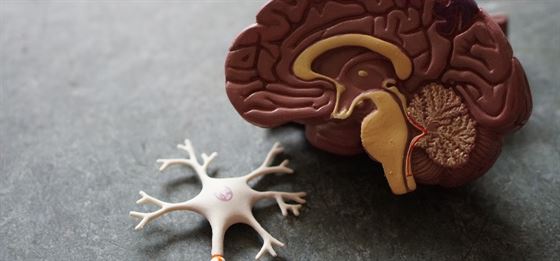
How can trauma change the brain?

How can Trauma Change the Brain?
Trauma is a deeply distressing or disturbing experience that can have lasting effects on an individual's well-being. One of the most intriguing aspects of trauma is its ability to reshape the very organ that governs our thoughts, emotions, and behaviors—the brain. This article explores the question: Can trauma change the brain?
Can trauma change the brain?
Trauma, whether stemming from a singular event or prolonged exposure to stressors, has profound effects on individuals. Its impact extends beyond emotional distress, reaching into the fabric of the brain, the intricate workings of the body, and the dynamics of relationships. Understanding how trauma influences these interconnected aspects is crucial for both individuals affected and those supporting them.
Trauma can reshape the brain's architecture, particularly in regions responsible for emotional regulation and memory. The amygdala, the brain's emotional center, becomes hyperactive, producing heightened emotional responses. Conversely, the prefrontal cortex, crucial for decision-making and impulse control, may become impaired. This imbalance can contribute to symptoms such as anxiety, depression, and difficulty concentrating.
Research suggests that exposure to trauma can indeed alter the structure and function of the brain. The amygdala, responsible for processing emotions, may become hyperactive, leading to heightened emotional responses. Conversely, the prefrontal cortex, crucial for decision-making and emotional regulation, may be impaired, affecting an individual's ability to cope with stress.
Understanding how trauma changes the brain requires acknowledging the concept of neuroplasticity. The brain's ability to reorganize structurally and functionally suggests that interventions and therapeutic approaches can potentially mitigate the effects of trauma. Harnessing neuroplasticity offers hope for individuals seeking recovery.
Can Trauma Change the Brain in Childhood?
Childhood trauma can have particularly profound effects, given the developing nature of the young brain. Adverse childhood experiences may alter neural pathways, influencing emotional regulation and increasing the risk of mental health disorders later in life. Early intervention is crucial in breaking this cycle.
Can trauma change the brainand body?
The stress response system, including the release of cortisol and adrenaline, becomes dysregulated in the face of trauma. Prolonged exposure to these stress hormones can lead to a range of physical health issues, including disrupted sleep, digestive problems, and a weakened immune system. Trauma survivors may find themselves caught in a perpetual state of "fight or flight," even in non-threatening situations, with enduring consequences for their overall well-being.
Beyond its impact on the brain, trauma also leaves an indelible mark on the body. The stress response system, including releasing cortisol and adrenaline, can become dysregulated. Prolonged exposure to these stress hormones may contribute to a range of physical health issues, from cardiovascular problems to compromised immune function.
Can trauma change the brain and relationships?
Trauma has a profound impact on interpersonal connections. Trust issues, emotional withdrawal, and difficulty forming close bonds often characterize relationships affected by trauma. Individuals may struggle with intimacy, communication, and establishing a sense of security. The cycle of trauma can also perpetuate through generations, affecting family dynamics and creating challenges for those attempting to break the cycle.
Individuals who have experienced trauma may struggle with forming and maintaining connections. Trust issues, emotional distancing, and difficulty expressing vulnerability are common challenges that strain relationships.
Trauma-Informed Care:
Recognizing the pervasive impact of trauma, a shift towards trauma-informed care has gained momentum. This approach acknowledges the prevalence of trauma and aims to create environments that promote healing and resilience. The stigma surrounding mental health often exacerbates the challenges faced by individuals dealing with trauma. Open conversations and increased awareness can reduce stigma and foster a supportive community that encourages seeking help.
Conclusion:
In conclusion, the question "Can trauma change the brain?" is met with a resounding affirmation based on scientific evidence. However, it is equally crucial to recognize that the brain's plasticity allows for the potential for healing and recovery. Addressing the impact of trauma on relationships and the body underscores the need for a holistic approach that considers both psychological and physiological well-being.
Recognizing the multifaceted impact of trauma is essential for both survivors and those who aim to support them. Individual and relational therapy can be a vital component of the healing process. By addressing the neurological, physiological, and interpersonal aspects of trauma, individuals can work towards reclaiming agency over their lives and fostering healthier connections with themselves and others. By understanding how can trauma change the brain and implementing trauma-informed practices, we can collectively work towards supporting individuals on their journey to healing.
Articles
Build your awareness and get inspired with our researched articles on how you can strengthen your well-being
Popular Topics
An OTP has been sent to the email address
provided.
Please check your Inbox and Spam folders.

What Would You Like to Speak with a Specialist About?
Mental Fitness Journey starts Now!
Chearful Connects you with Top-tier Qualified Wellness specialists for the Price of a cup of Coffee!

Next Steps
- A Client Team member will reach out to you to schedule a session with the most suitable specialist.
- You will receive an email with a 10% Discount Code* for your 1st session.
- We invite you to Explore the Platform & Sign Up today! *Upto a maximum of $10 discount on a session purchased




 3188 Read
3188 Read



.jpg)









.png)

.jpg)

.jpg)



.jpg)































.jpg)




























